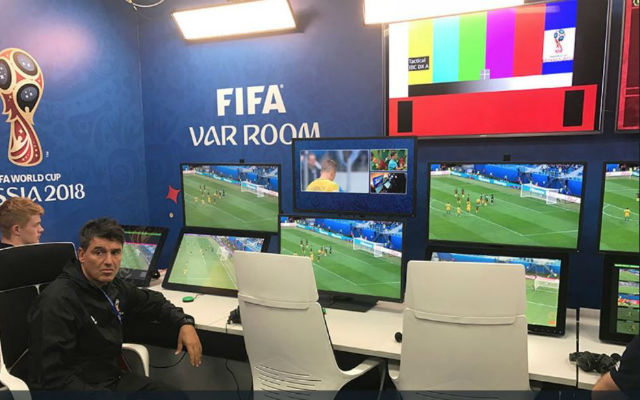The World Cup 2018 is here and we will be treated to some of the world’s finest players partaking in Russia.
However, this year will also mark a historic moment in the tournament as VAR will be used in the World Cup for the very first time.
The system has been trialled in various competitions domestically and was used in the Confederations Cup and the FIFA U20 World Cup last summer.
For the new season, VAR will be implemented at all Premier League grounds staging Carabao Cup matches after it was used in the semi-finals last season.
The technology is still very much in its infancy and has caused some controversy in England when it was used in some FA Cup matches.
The hope is for VAR to help referees with contentious decisions on the pitch such as goals, penalty decisions, offsides and mistaken identity.
Leicester City’s Kelechi Iheanacho made history by becoming the first player to benefit from the use of VAR in England.
His second goal in a 2-0 victory against Fleetwood Town was initially disallowed for offside, before being awarded 67 seconds after it hit the net.
However, it has been approved by FIFA for this year’s international gala and here is a guide of how it will work.
How will VAR be used in the World Cup 2018?
There are four different incidents that can be reviewed:
Goals: VAR is used here to help the referee determine whether an infringement was made that should result in the goal not being awarded.
Penalties: VAR will look to ensure that the correct decision was made regarding the award or non-award of a penalty.
Red cards: Much like with penalty decisions, VAR will look to ensure that the correct decision was made.
Mistaken identity: VAR will clarify which players should be cautioned or sent off, or correct the referee in the event of mistaken identity.
The video referee will sit in a special room in Moscow and advise the on-field referee if he needs signals to consult VAR, according to The Independent.
However, ultimately, the decision lies with the on-field referee to make a final decision.
For the World Cup FIFA will be able to use a tablet to send information to spectators and broadcasters whilst the decisions are happening to help the crowd become more involved in the process, according to The Independent.
